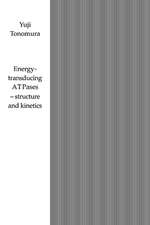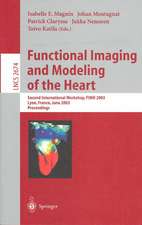The Pelvis: Structure, Gender and Society
Autor Enrico Marani, Wijnand F.R.M. Kochen Limba Engleză Paperback – 2 sep 2016
The book starts with a “construction plan” of the pelvis and shows its structural consequences. The historical background of pelvic studies proceeds from medieval and early Italian models to the definitive understanding of the pelvic anatomy in the Seventeenth century. During these eras of pelvic research, concepts and approaches developed that are illustrated with examples from comparative anatomy and from mutations, also with regard to the biomechanics of pelvic structures. Perceptions of the pelvis as an important element in sexual arousal and mating conduct are discussed, as well as attitudes to circumcision, castration and other mutilations, in its anthropological, social context.
The anatomy and physiology of the pelvic wall and its organs as well as the development of these pelvic organs are covered as a prerequisite to understanding, for example, the spread of pelvic carcinoma and male and female bladder muscle function. Connective pelvic tissue is examined in its reinforcing capacity for pelvic structures, but also as a “hiding place” for infections. Innervations and reflexes relayed through the pelvic nerves are discussed in order to explain incontinence, sphincter function and the control of smooth and striated muscles in the pelvis.
Catheters and drugs acting on pelvic function are described, and a critical review of alternative clinical methods for treating pelvic dysfunctions is provided.
| Toate formatele și edițiile | Preț | Express |
|---|---|---|
| Paperback (1) | 1425.04 lei 6-8 săpt. | |
| Springer Berlin, Heidelberg – 2 sep 2016 | 1425.04 lei 6-8 săpt. | |
| Hardback (1) | 1432.38 lei 6-8 săpt. | |
| Springer Berlin, Heidelberg – 26 feb 2014 | 1432.38 lei 6-8 săpt. |
Preț: 1425.04 lei
Preț vechi: 1500.04 lei
-5% Nou
Puncte Express: 2138
Preț estimativ în valută:
272.77€ • 296.39$ • 229.27£
272.77€ • 296.39$ • 229.27£
Carte tipărită la comandă
Livrare economică 21 aprilie-05 mai
Preluare comenzi: 021 569.72.76
Specificații
ISBN-13: 9783662524602
ISBN-10: 3662524600
Pagini: 575
Ilustrații: XVII, 558 p. 203 illus., 80 illus. in color.
Dimensiuni: 155 x 235 x 30 mm
Greutate: 0.8 kg
Ediția:Softcover reprint of the original 1st ed. 2014
Editura: Springer Berlin, Heidelberg
Colecția Springer
Locul publicării:Berlin, Heidelberg, Germany
ISBN-10: 3662524600
Pagini: 575
Ilustrații: XVII, 558 p. 203 illus., 80 illus. in color.
Dimensiuni: 155 x 235 x 30 mm
Greutate: 0.8 kg
Ediția:Softcover reprint of the original 1st ed. 2014
Editura: Springer Berlin, Heidelberg
Colecția Springer
Locul publicării:Berlin, Heidelberg, Germany
Cuprins
The Pelvis or My Pelvis.- “Construction Plan” of the Bony Pelvis.- The Pelvis at War.- The Birth Canal.- History.- Concepts and Approaches in the Study of the Pelvis.- Sexual Organs and Society.- Anatomy of the Pelvic Wall.- The Development of Uropoetic Structures.- Physiotherapy for Pelvic Muscles.- The Sub and Retroperitoneal Space.- Vision and Waist-to-Hip Ratio.- Male and Female Bladder.- The Pelvis and Herbal Medicine.- Innervation of the Mature Human Pelvis.- Electromyography of Smooth Muscle of Bladder and Uterus.- Reflexes or Controller Action?.- The Connective Tissue in the Pelvis.- Sitting a Pelvic Function?.- Sphincters.- Catheters.- The Pelvis During Childhood and Puberty.- The Pelvis and Aging.
Textul de pe ultima copertă
This book offers a critical review of the pelvic sciences—past, present and future—from
an anatomical and physiological perspective and is intended for researchers, medical practitioners and paramedical therapists in the fields of urology, gynecology and obstetrics, proctology, physiotherapy, as well as for patients.
The book starts with a “construction plan” of the pelvis and shows its structural
consequences. The historical background of pelvic studies proceeds from medieval and early Italian models to the definitive understanding of the pelvic anatomy in the Seventeenth century. During these eras of pelvic research, concepts and approaches developed that are illustrated with examples from comparative anatomy and from mutations, also with regard to the biomechanics of pelvic structures. Perceptions of the pelvis as an important element in sexual arousal and mating conduct are discussed, as well as attitudes to circumcision, castration and other mutilations, in its anthropological, social context.
The anatomy and physiology of the pelvic wall and its organs as well as the development of these pelvic organs are covered as a prerequisite to understanding, for example, the spread of pelvic carcinoma and male and female bladder muscle function. Connective pelvic tissue is examined in its reinforcing capacity for pelvic structures, but also as a “hiding place” for infections. Innervations and reflexes relayed through the pelvic nerves are discussed in order to explain incontinence, sphincter function and the control of smooth and striated muscles in the pelvis.
Catheters and drugs acting on pelvic function are described, and a critical review of alternative clinical methods for treating pelvic dysfunctions is provided.
an anatomical and physiological perspective and is intended for researchers, medical practitioners and paramedical therapists in the fields of urology, gynecology and obstetrics, proctology, physiotherapy, as well as for patients.
The book starts with a “construction plan” of the pelvis and shows its structural
consequences. The historical background of pelvic studies proceeds from medieval and early Italian models to the definitive understanding of the pelvic anatomy in the Seventeenth century. During these eras of pelvic research, concepts and approaches developed that are illustrated with examples from comparative anatomy and from mutations, also with regard to the biomechanics of pelvic structures. Perceptions of the pelvis as an important element in sexual arousal and mating conduct are discussed, as well as attitudes to circumcision, castration and other mutilations, in its anthropological, social context.
The anatomy and physiology of the pelvic wall and its organs as well as the development of these pelvic organs are covered as a prerequisite to understanding, for example, the spread of pelvic carcinoma and male and female bladder muscle function. Connective pelvic tissue is examined in its reinforcing capacity for pelvic structures, but also as a “hiding place” for infections. Innervations and reflexes relayed through the pelvic nerves are discussed in order to explain incontinence, sphincter function and the control of smooth and striated muscles in the pelvis.
Catheters and drugs acting on pelvic function are described, and a critical review of alternative clinical methods for treating pelvic dysfunctions is provided.
Caracteristici
Provides in depth information about pelvic physiology and anatomy
Includes chapters highlighting pelvic dysfunction and corresponding therapeutic interventions
Combines basic research and clinical application and provides a historic perspective of research on pelvic anatomy and physiology
Includes supplementary material: sn.pub/extras
Includes chapters highlighting pelvic dysfunction and corresponding therapeutic interventions
Combines basic research and clinical application and provides a historic perspective of research on pelvic anatomy and physiology
Includes supplementary material: sn.pub/extras




























